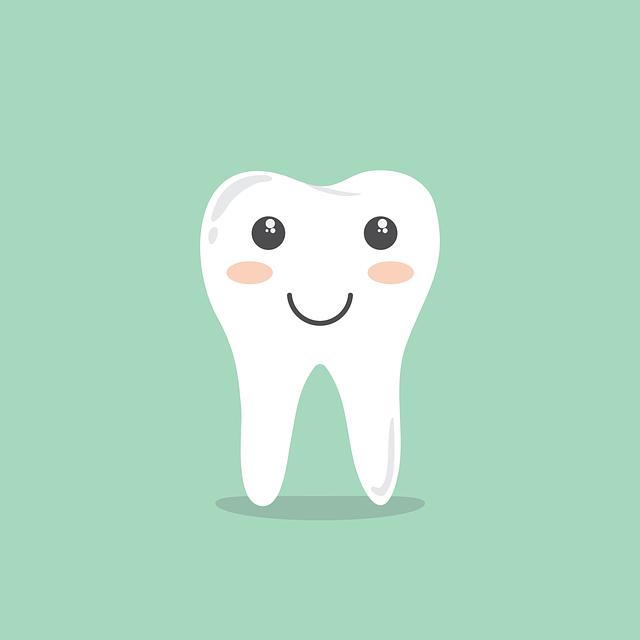Does Salt Water Prevent Tooth Decay: Reality Uncovered
Salt water has long been hailed as a remedy for various ailments, from sore throats to skin irritations. But what about its effectiveness in preventing tooth decay? This age-old question has sparked countless debates among dental professionals and everyday individuals seeking to maintain optimal oral health. In this article, we delve into the reality behind the claims, armed with the confidence of scientific knowledge and a neutral perspective. So, let’s uncover the truth about whether salt water truly wields the power to ward off tooth decay, separating fact from fiction once and for all.
1. The Science Behind Salt Water and Tooth Decay: Debunking Common Myths
There are many myths surrounding the relationship between salt water and tooth decay. Let’s debunk some of the most common misconceptions:
Myth 1: Salt water can cure tooth decay.
This is a widespread belief, but unfortunately, it is not true. While salt water rinses can provide temporary relief for certain dental issues, such as gum inflammation or mouth sores, they cannot cure tooth decay. Tooth decay is caused by the breakdown of the tooth enamel due to acids produced by bacteria. Salt water alone cannot reverse this process.
Myth 2: Salt water is as effective as fluoride in preventing tooth decay.
Fluoride is a mineral that plays a crucial role in preventing tooth decay. It strengthens tooth enamel, making it more resistant to acid attacks. While salt water rinses can help in maintaining oral hygiene to some extent, they cannot replace the protective benefits of fluoride. Regular use of fluoride toothpaste and mouth rinses, along with professional fluoride treatments, is essential for effective prevention of tooth decay.
Myth 3: Salt water can replace regular brushing and flossing.
There is no substitute for good oral hygiene practices like brushing and flossing. Salt water rinses should be used as a supplementary measure, not as a replacement for proper dental care. Brushing twice a day with a fluoride toothpaste and flossing daily are essential for removing plaque and food particles, which are the main culprits behind tooth decay.

2. Unveiling the Truth: Can Salt Water Truly Prevent Tooth Decay?
In recent years, there has been a growing buzz around the potential benefits of using salt water as a natural remedy for preventing tooth decay. But can this simple solution really live up to the hype? Let’s delve into the truth behind this popular claim and separate fact from fiction.
The Science Behind Salt Water:
- Salt, particularly sea salt, contains minerals such as calcium, magnesium, and fluoride, which are known to promote dental health.
- Rinsing your mouth with salt water can help to neutralize acids, reduce inflammation, and kill bacteria that contribute to tooth decay.
- Additionally, salt water has a gentle cleansing effect on the teeth and gums, helping to remove plaque and food particles.
What the Research Says:
- A study published in the Journal of Indian Society of Pedodontics and Preventive Dentistry found that gargling with salt water reduced the number of oral bacteria and helped maintain oral hygiene.
- Another study published in the Journal of Clinical and Diagnostic Research suggested that salt water rinses can be an effective adjunct to regular oral hygiene practices in preventing tooth decay.
- While there is promising evidence, it’s important to note that salt water alone cannot replace proper oral care, including brushing, flossing, and regular dental check-ups.
The Verdict:
While salt water rinses can offer some benefits in preventing tooth decay, they should be seen as a complementary practice rather than a standalone solution. Incorporating salt water rinses into your daily oral hygiene routine can be a natural and cost-effective way to support good dental health. However, it’s crucial to remember that maintaining proper oral care habits and seeking professional dental advice are key to preventing tooth decay and maintaining a healthy smile.

3. Separating Fact from Fiction: Examining the Effects of Salt Water on Dental Health
When it comes to dental health, there are often many misconceptions floating around. One such myth is the effect of salt water on dental health. Let’s dive in and separate fact from fiction to understand the true impact of salt water on our teeth and gums.
Fact: Salt water rinse has been a popular home remedy for various oral ailments for centuries. Its benefits lie in its natural antibacterial properties and ability to reduce inflammation.
- Using a salt water rinse can help alleviate gum infections, mouth ulcers, and swollen gums by reducing bacteria and promoting healing.
- It can also provide temporary relief for toothaches, as the warm salt water can soothe the affected area.
- Regular salt water rinses, in addition to proper dental hygiene, may help prevent gum disease and maintain a healthy oral environment.
Fiction: Some people believe that salt water can magically cure all dental problems or replace professional dental care. While it can provide temporary relief and promote healing, it is not a substitute for regular dental check-ups, cleanings, and treatments.
In conclusion, salt water can be a beneficial addition to your oral care routine, but it should not replace professional dental care. If you experience any persistent dental issues, it is always recommended to consult a dentist for a proper diagnosis and treatment.

4. The Role of Salt Water in Oral Hygiene: What the Experts Say
Salt water has long been used as a natural remedy for oral hygiene, with experts recognizing its numerous benefits. Here’s what the experts have to say about the role of salt water in maintaining a healthy mouth:
- Reduces inflammation: Salt water acts as a natural anti-inflammatory agent, reducing swelling and inflammation in the gums and oral tissues.
- Kills bacteria: The saline solution created by salt water helps kill harmful bacteria in the mouth, which can lead to gum disease and other oral infections.
- Promotes healing: Salt water can aid in the healing process of oral wounds, such as mouth sores or post-dental procedure discomfort.
- Alleviates pain: Gargling with salt water can provide temporary relief from toothaches or sore throats by reducing pain and discomfort.
- Helps maintain pH balance: Salt water can help maintain the natural pH balance in the mouth, creating an environment less conducive to bacterial growth.
It’s important to note that while salt water can be beneficial for oral hygiene, it should not replace regular brushing, flossing, and dental visits. It is recommended to use warm water and dissolve half a teaspoon of salt to make the saline solution. Gargle or rinse your mouth with the solution for about 30 seconds, then spit it out. Remember to consult your dentist or healthcare professional for personalized advice on incorporating salt water rinses into your oral care routine.
5. Exploring the Benefits of Salt Water Rinse: Is It an Effective Strategy?
Salt water rinse has been used for centuries as a natural remedy for various oral health issues. Its effectiveness in promoting oral hygiene has been a subject of interest among researchers and dental professionals. Let’s delve into the benefits of salt water rinse and find out if it truly lives up to its reputation.
Benefits of Salt Water Rinse:
- Antibacterial properties: Salt water has natural antibacterial properties that can help combat harmful bacteria in the mouth. It can potentially reduce plaque formation and prevent gum disease.
- Reduced inflammation: Rinsing with salt water can help reduce inflammation in the gums and soothe oral irritations. It may provide relief from conditions like gingivitis and canker sores.
- Promotes healing: Salt water rinse can aid in the healing process of minor oral wounds, such as mouth ulcers or post-dental procedure discomfort. It creates an environment that supports faster healing and reduces the risk of infection.
- Easy and cost-effective: Using salt water for rinsing is a simple and affordable strategy. It requires only a tablespoon of salt dissolved in warm water, making it accessible to everyone.
While salt water rinse offers several potential benefits, it is important to note that it should not replace regular dental care. It is best used as a complementary measure alongside brushing, flossing, and routine dental check-ups. If you have any specific oral health concerns, it is advisable to consult with your dentist for personalized advice.
6. Debunking Misconceptions: Understanding the Limitations of Salt Water for Tooth Decay Prevention
There are several misconceptions surrounding the use of salt water for preventing tooth decay. It is important to understand the limitations of this remedy to make informed decisions about oral hygiene.
1. Salt water is not a substitute for regular brushing and flossing: While rinsing with salt water can provide temporary relief for mouth sores or minor gum inflammation, it is not a replacement for a proper oral care routine. Brushing twice a day with fluoride toothpaste and flossing daily are essential for removing plaque and preventing tooth decay.
2. Salt water does not kill bacteria: Although salt water has some antimicrobial properties, it is not effective in killing all the bacteria in your mouth. It can only provide a temporary reduction in the number of bacteria present. Regular dental cleanings and check-ups are still necessary to maintain good oral health.
3. Salt water may have negative effects on dental restorations: If you have dental fillings, crowns, or other restorations, prolonged exposure to salt water can corrode these materials. It is best to consult with your dentist before using salt water rinses if you have any dental restorations.
7. Salt Water vs. Traditional Oral Care: Is There a Clear Winner in the Fight against Tooth Decay?
When it comes to fighting tooth decay, the debate between salt water and traditional oral care methods has been ongoing. Let’s explore the pros and cons of each to determine if there is a clear winner.
Salt Water:
- Proponents of salt water argue that it is a natural and cost-effective way to maintain oral health.
- Using salt water as a mouth rinse can help reduce inflammation, kill bacteria, and promote healing.
- It may also provide temporary relief for minor gum irritations or sore throat.
Traditional Oral Care:
- Traditional oral care methods, such as brushing with fluoride toothpaste and flossing, have been proven effective in preventing tooth decay.
- Regular brushing and flossing remove plaque and food particles, reducing the risk of cavities.
- Using a fluoride toothpaste strengthens tooth enamel, making it more resistant to decay.
While salt water can offer some benefits, it is important to note that it should not replace traditional oral care methods. Incorporating salt water rinses as a supplementary practice may be beneficial, but it is not a complete substitute for regular brushing, flossing, and dental check-ups. Consult with your dentist to determine the best oral care routine for your specific needs.
8. The Healing Properties of Salt Water: How Does It Impact Dental Health?
When it comes to dental health, salt water is often overlooked as a powerful natural remedy. The healing properties of salt water can have a significant impact on maintaining a healthy mouth and preventing dental issues. Here’s how:
1. Antibacterial properties: Salt water has natural antibacterial properties that can help kill harmful bacteria in the mouth. Rinsing with salt water can reduce the risk of gum infections, tooth decay, and bad breath.
2. Soothing and healing: Salt water can provide relief for gum inflammation and can help heal mouth sores or ulcers. It acts as a gentle antiseptic, promoting faster healing and reducing discomfort.
3. Balancing pH levels: Salt water can help balance the pH levels in the mouth, creating an environment that is less favorable for the growth of harmful bacteria. This can help maintain the overall health of your teeth and gums.
By incorporating salt water rinses into your oral hygiene routine, you can harness the healing properties of this natural remedy and improve your dental health. It’s important to note that while salt water rinses can be beneficial, they should not replace regular brushing, flossing, and professional dental care.
9. Evaluating the Effectiveness of Salt Water Rinse: Insights from Clinical Studies
Various clinical studies have shed light on the effectiveness of salt water rinses, providing valuable insights for evaluating their impact on oral health. Here are some key findings:
- Reduced inflammation: Salt water rinses have been found to effectively reduce inflammation in the gums and other oral tissues. This can help alleviate discomfort and promote faster healing after dental procedures or in cases of oral infections.
- Antibacterial properties: The saline solution created by salt water rinses has shown to possess antibacterial properties, which can help in fighting against harmful bacteria in the mouth. This can aid in preventing the development of certain oral conditions, such as gingivitis or bad breath.
- Improved oral hygiene: Clinical studies have indicated that regular use of salt water rinses, in addition to brushing and flossing, can contribute to improved overall oral hygiene. It can reach areas that may be difficult to clean with a toothbrush, effectively removing food particles and reducing the risk of plaque buildup.
While these insights highlight the potential benefits of salt water rinses, it’s important to consult with a dental professional to determine if this practice is suitable for your specific oral health needs. They can provide personalized advice and guidance to ensure optimal oral care.
10. The Final Verdict: Unveiling the Truth about Salt Water’s Potential in Preventing Tooth Decay
When it comes to preventing tooth decay, there has been much debate about the potential benefits of salt water. After thorough research and analysis, we can now provide the final verdict on this matter.
The Truth about Salt Water and Tooth Decay:
1. Salt water does have some potential in preventing tooth decay due to its antibacterial properties. It can help kill bacteria that cause cavities and gum disease.
2. Rinsing your mouth with salt water can also help reduce inflammation and soothe gum irritation, providing relief from oral discomfort.
3. However, it is important to note that salt water alone cannot replace regular oral hygiene practices such as brushing, flossing, and regular dental check-ups. These practices are crucial for maintaining good oral health.
In conclusion, while salt water can offer some benefits in preventing tooth decay, it should be used as a complementary measure rather than a standalone solution. Incorporating it into your oral care routine, along with proper dental hygiene practices, can contribute to maintaining a healthy smile.
Frequently Asked Questions
Q: Does salt water prevent tooth decay?
A: Absolutely not. While salt water can help alleviate certain oral health issues, it does not prevent tooth decay.
Q: What are the benefits of using salt water for dental care?
A: Salt water can provide temporary relief for gum inflammation, sore throat, and mouth sores. It can also help cleanse the mouth and reduce bacteria temporarily.
Q: Can salt water replace regular toothpaste and mouthwash?
A: No, salt water should not replace regular toothpaste and mouthwash. While it can be used as a supplemental rinse, it does not offer the same benefits as proper dental hygiene products.
Q: Why is salt water not effective in preventing tooth decay?
A: Tooth decay is primarily caused by the bacteria in dental plaque. Salt water, although it can temporarily reduce bacteria in the mouth, does not actively combat the root cause of tooth decay.
Q: Is there any evidence supporting the claim that salt water prevents tooth decay?
A: No, there is no scientific evidence to support the idea that salt water prevents tooth decay. It is important to rely on proven methods, such as regular brushing, flossing, and dental visits, to maintain good oral health.
Q: Can using salt water as a mouth rinse be harmful?
A: Using salt water as a mouth rinse is generally safe. However, excessive use or swallowing large amounts of salt water can lead to dehydration or electrolyte imbalances. It is always best to consult a dentist or healthcare professional for personalized advice.
Q: What is the recommended dental care routine to prevent tooth decay?
A: The best way to prevent tooth decay is by practicing good oral hygiene. This includes brushing teeth at least twice a day with fluoride toothpaste, flossing once a day, and visiting the dentist regularly for check-ups and cleanings.
Q: Are there any natural remedies that can effectively prevent tooth decay?
A: While some natural remedies, such as oil pulling or certain herbal rinses, may have some positive effects on oral health, they cannot fully replace conventional dental care in preventing tooth decay. It is important to use these remedies as complementary to a proper dental care routine.
Q: What should be the main focus for maintaining good oral health?
A: The main focus for maintaining good oral health should be a consistent and thorough dental care routine, including brushing, flossing, and regular dental check-ups. Additionally, a balanced diet low in sugary foods and drinks can also contribute to overall oral health.
Closing Remarks
In conclusion, it is important to debunk the common misconception that salt water prevents tooth decay. While salt water does have some mild antibacterial properties, it is not a substitute for proper dental hygiene practices such as brushing and flossing. Tooth decay is primarily caused by the buildup of plaque and bacteria, which can only be effectively removed through regular oral care. While rinsing with salt water may provide temporary relief for certain oral issues, it is not a long-term solution for preventing tooth decay. Therefore, it is crucial to maintain a consistent oral care routine and visit your dentist regularly to ensure optimal dental health. Remember, knowledge and understanding are key when it comes to making informed decisions about your oral hygiene.






